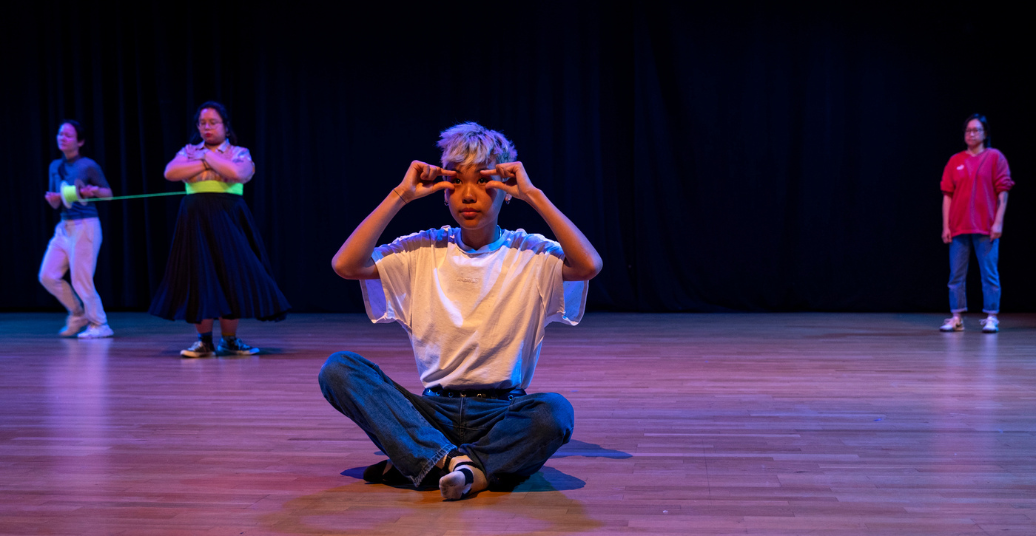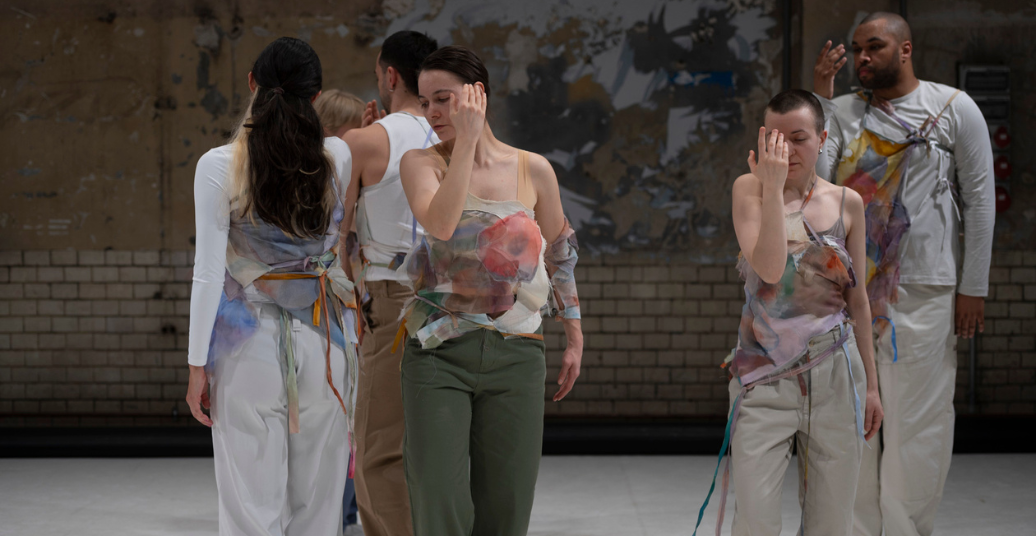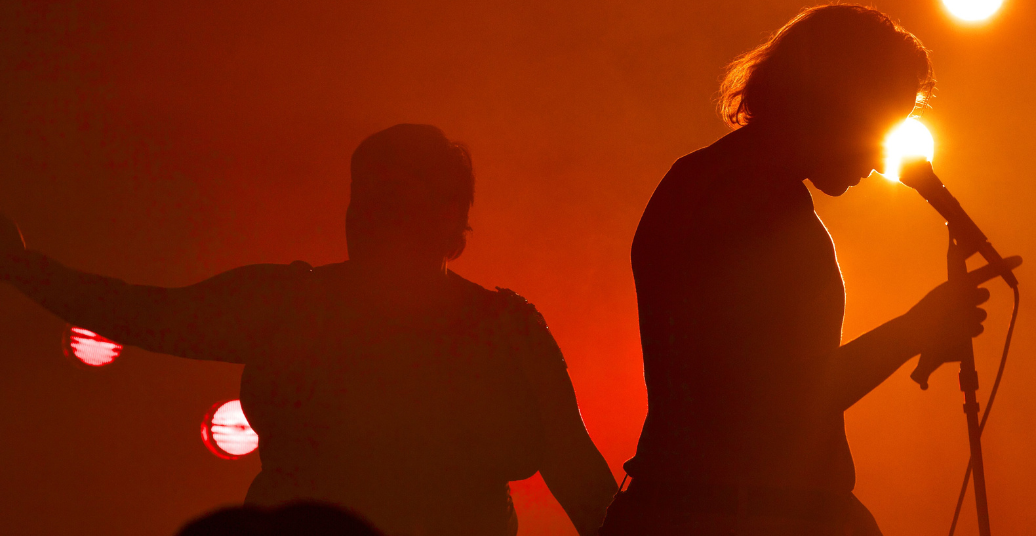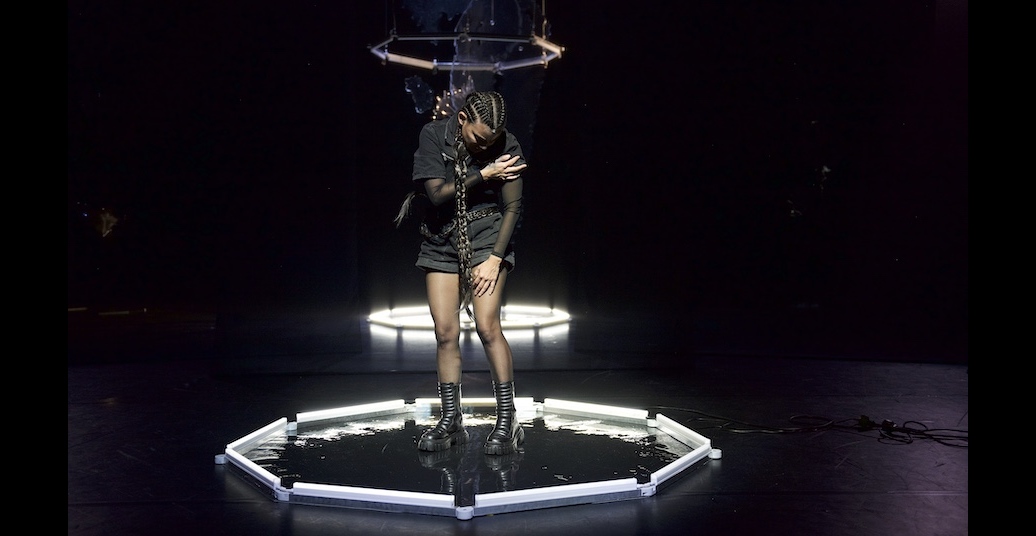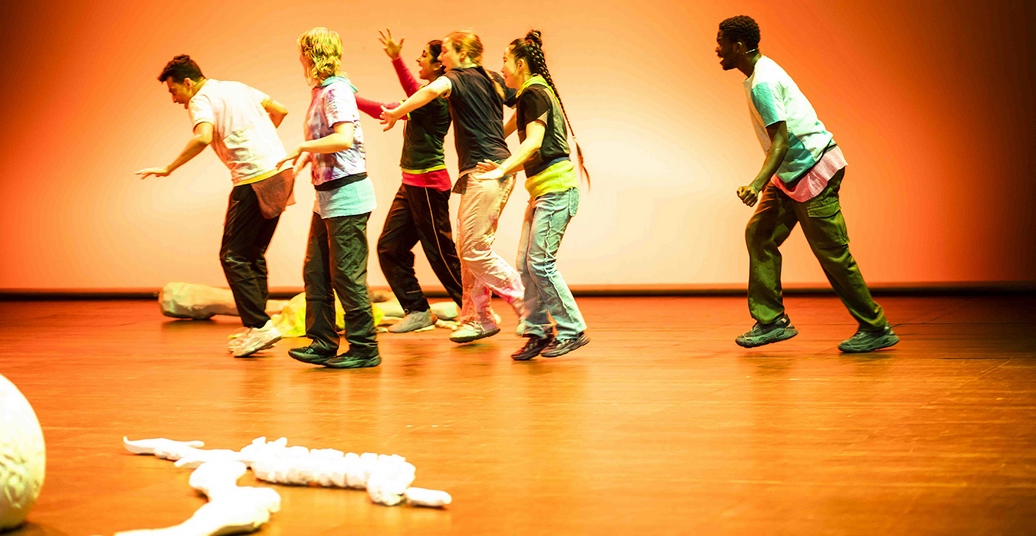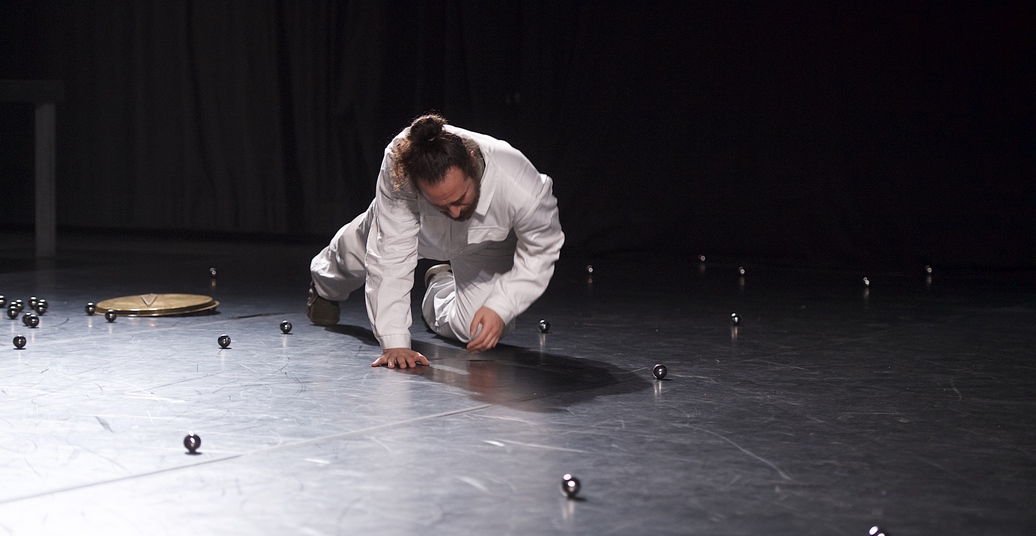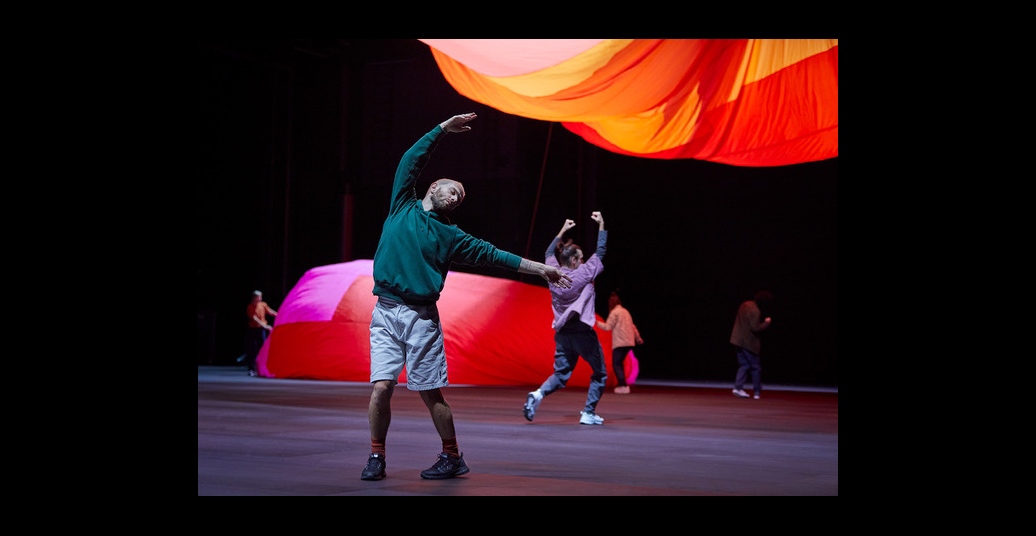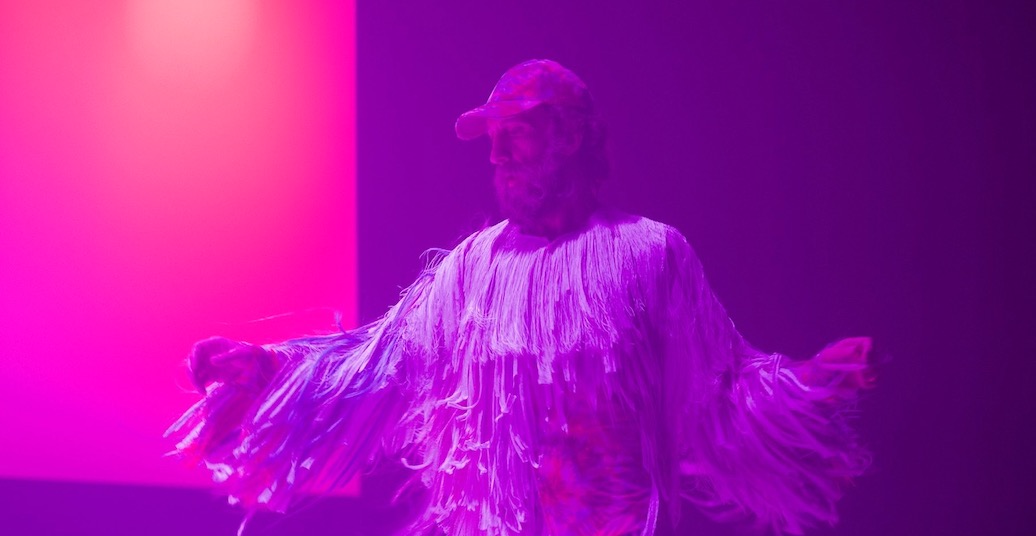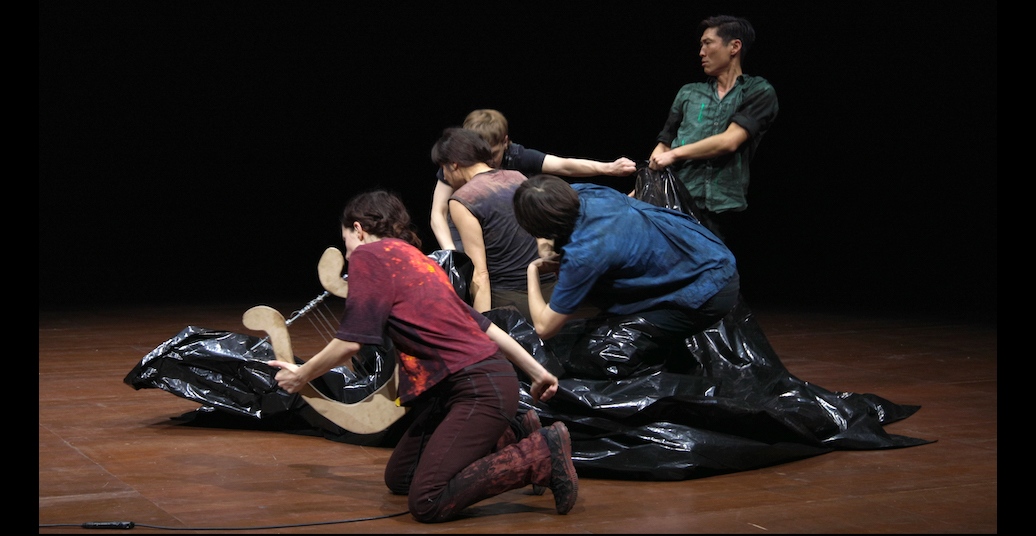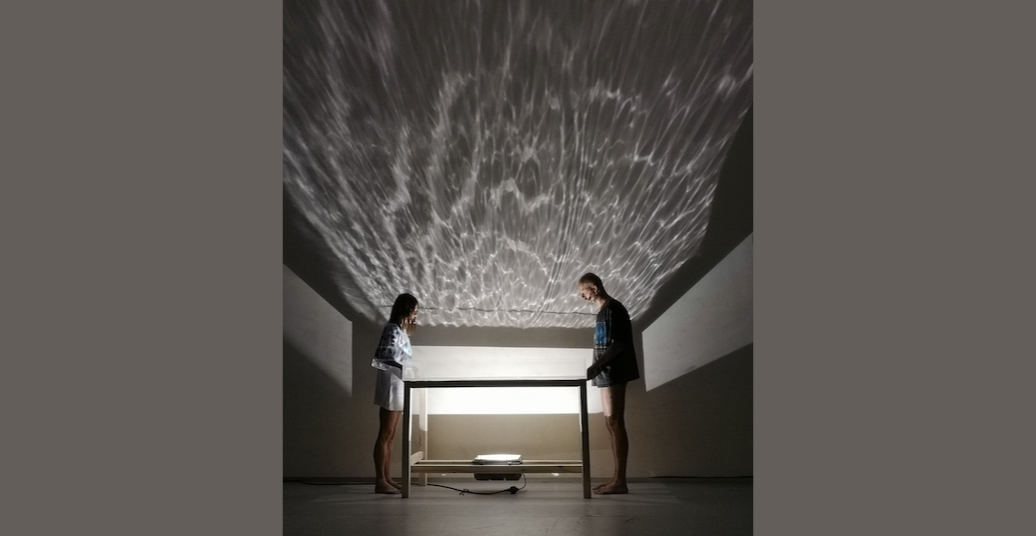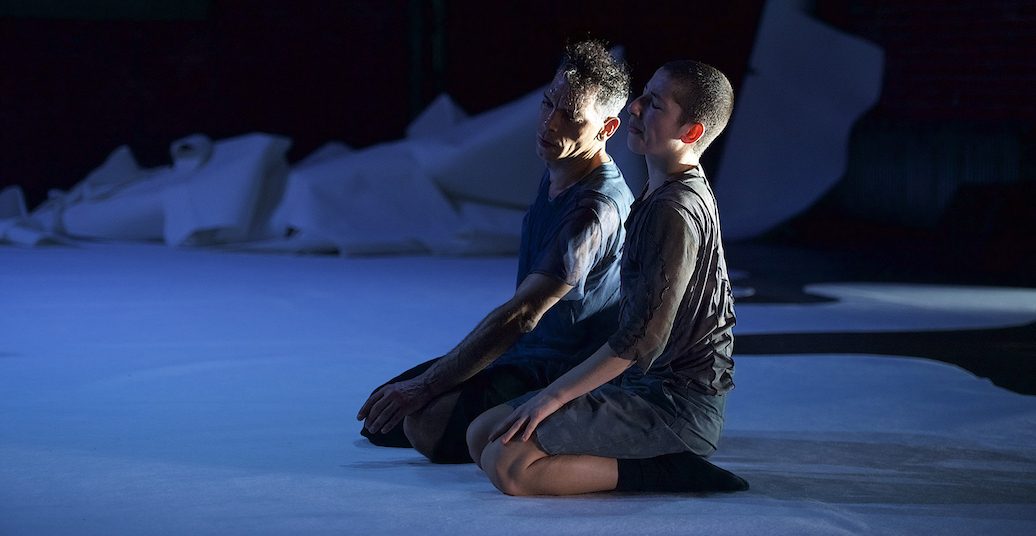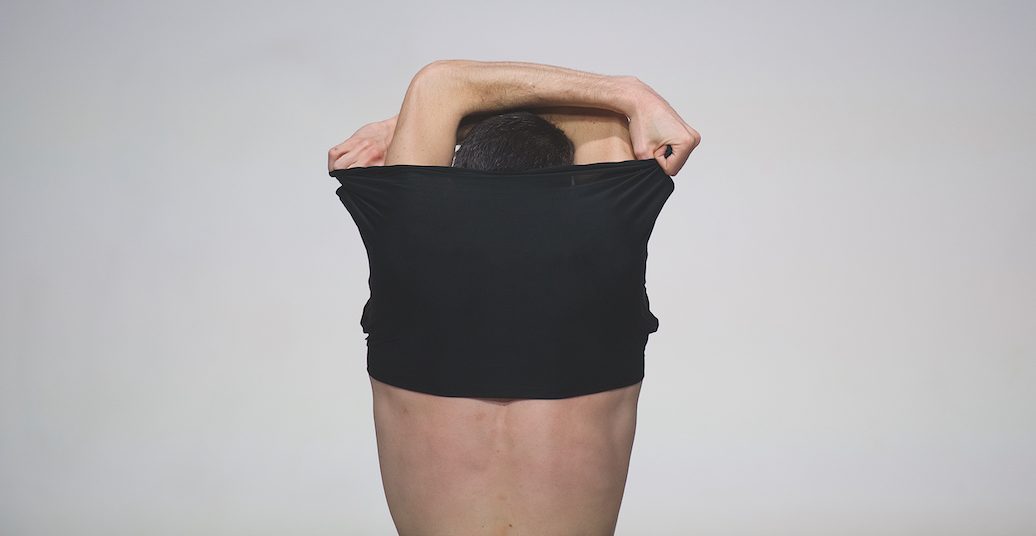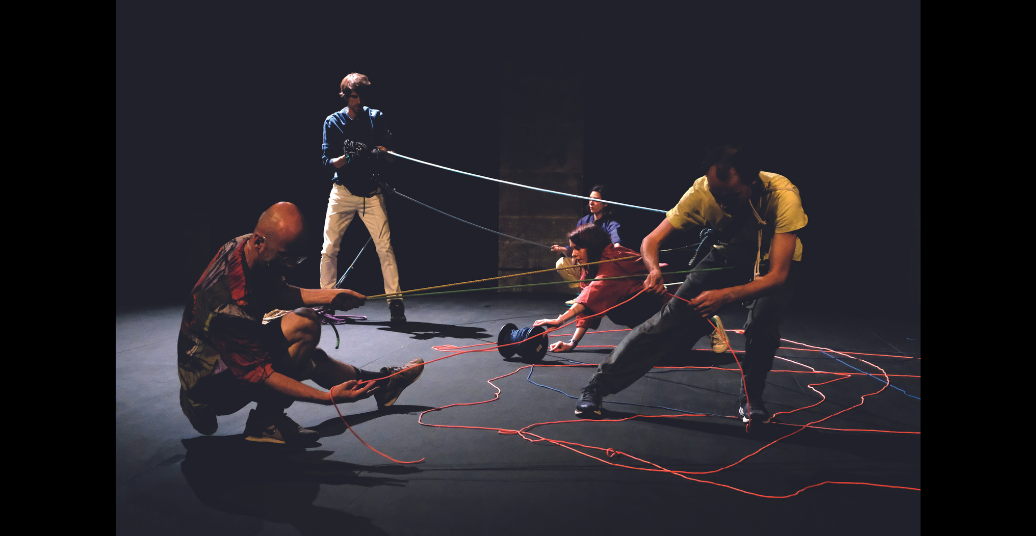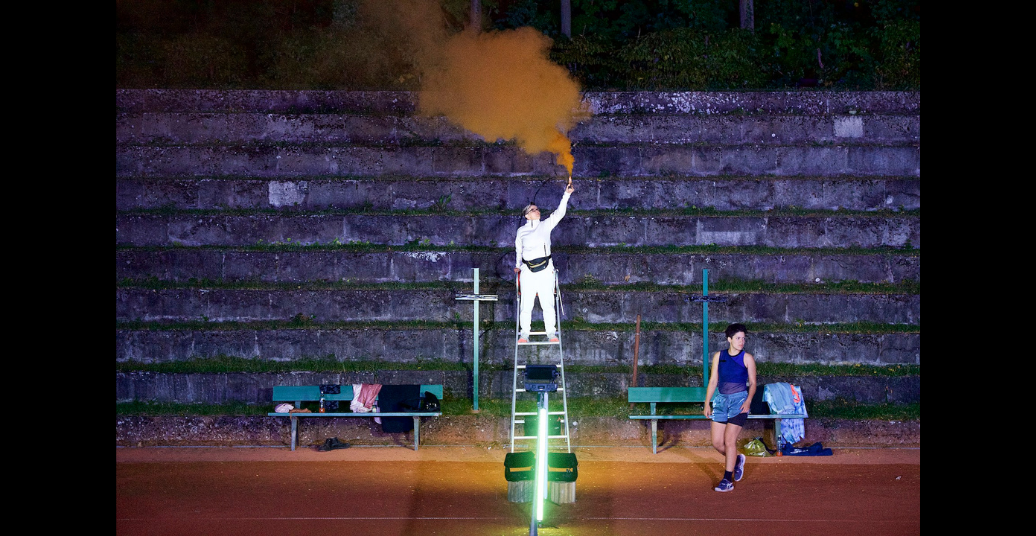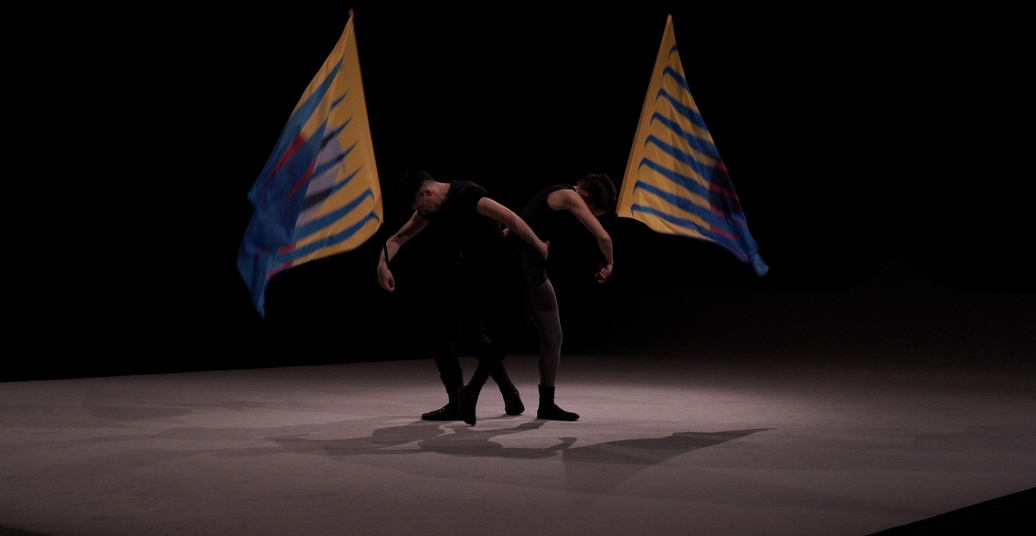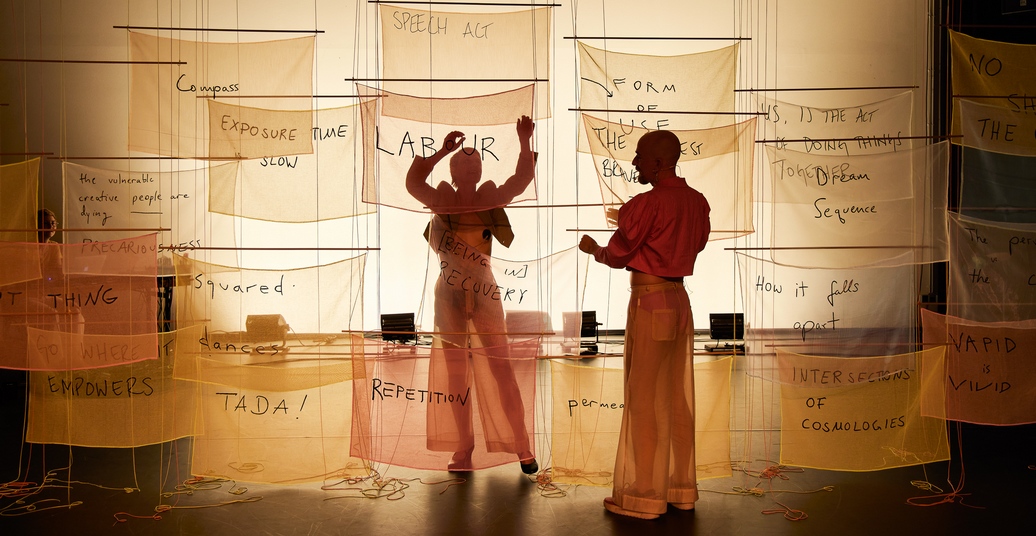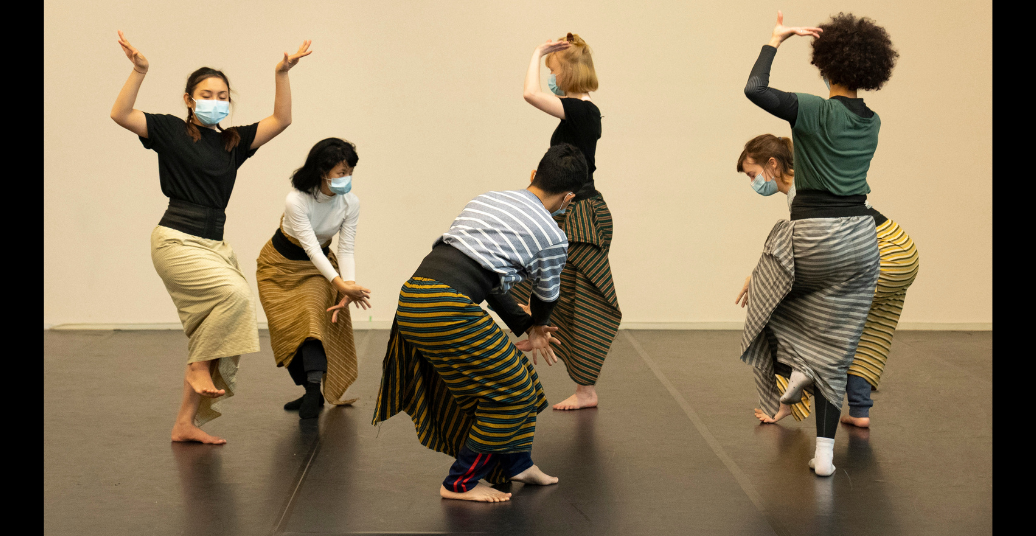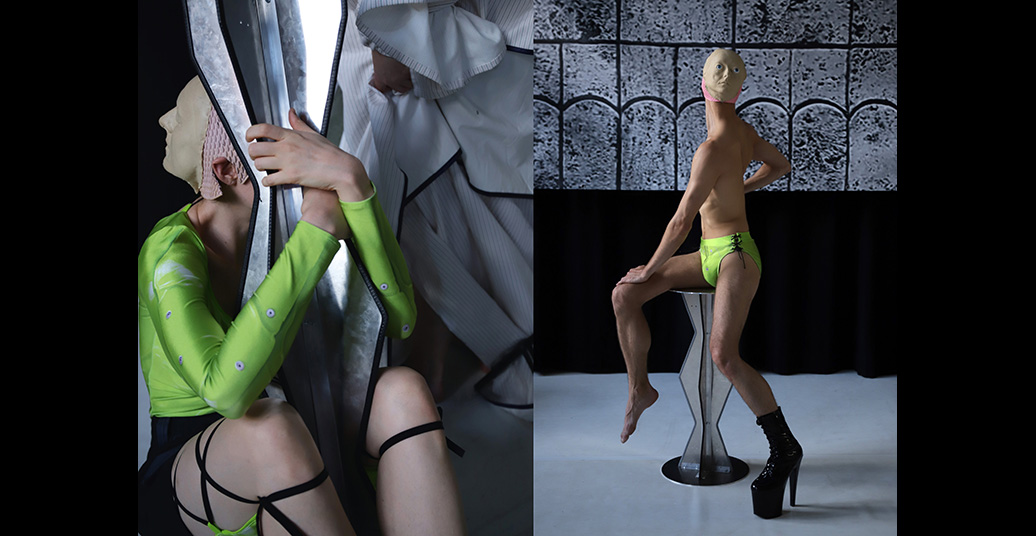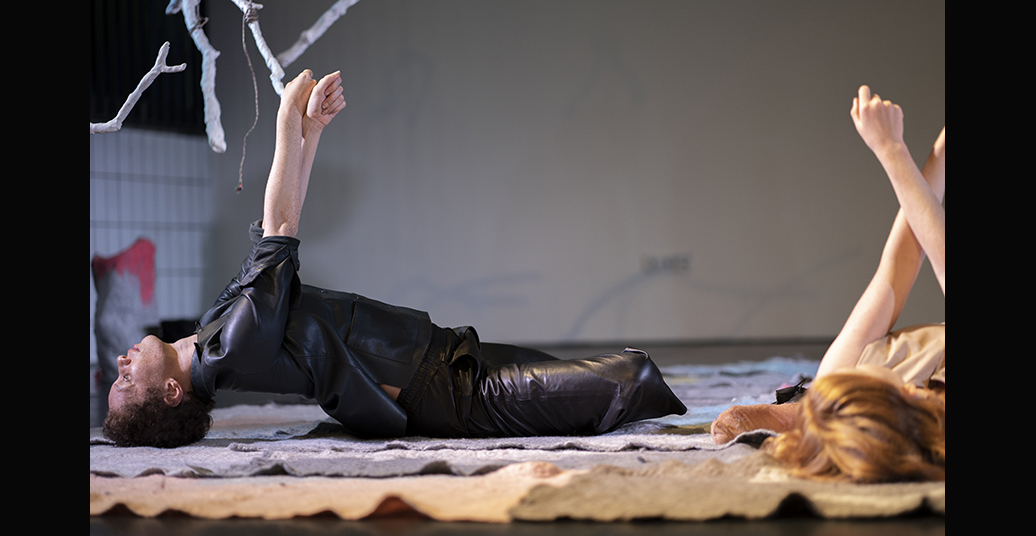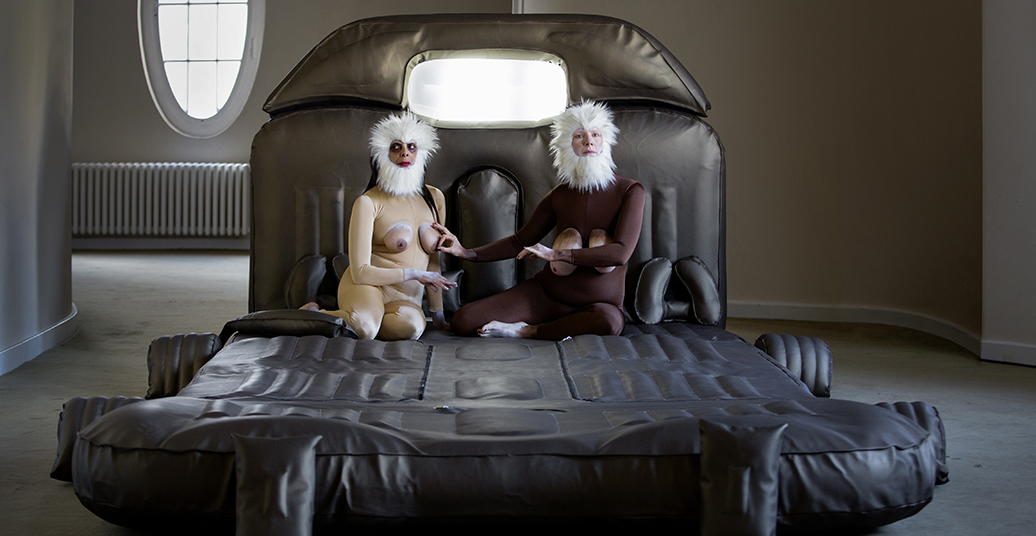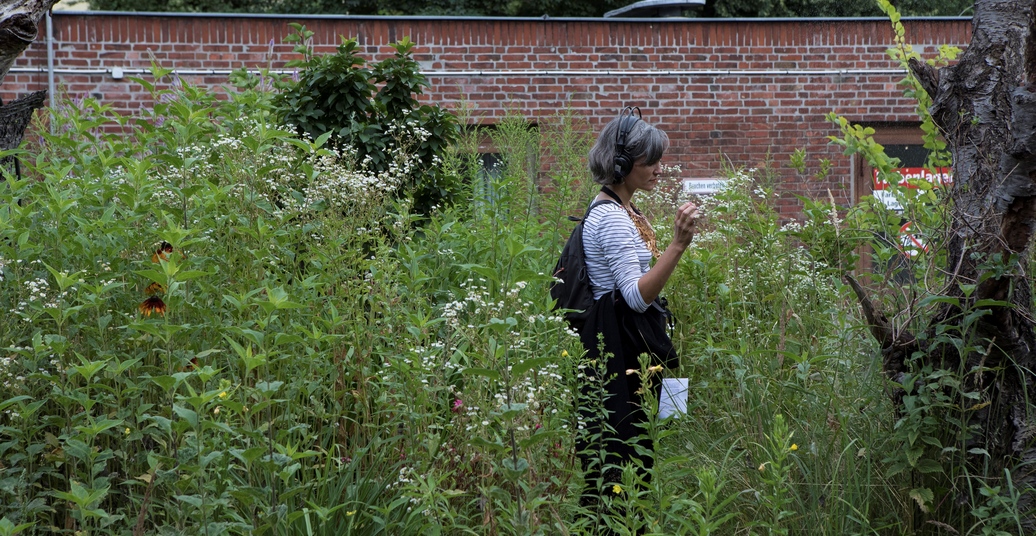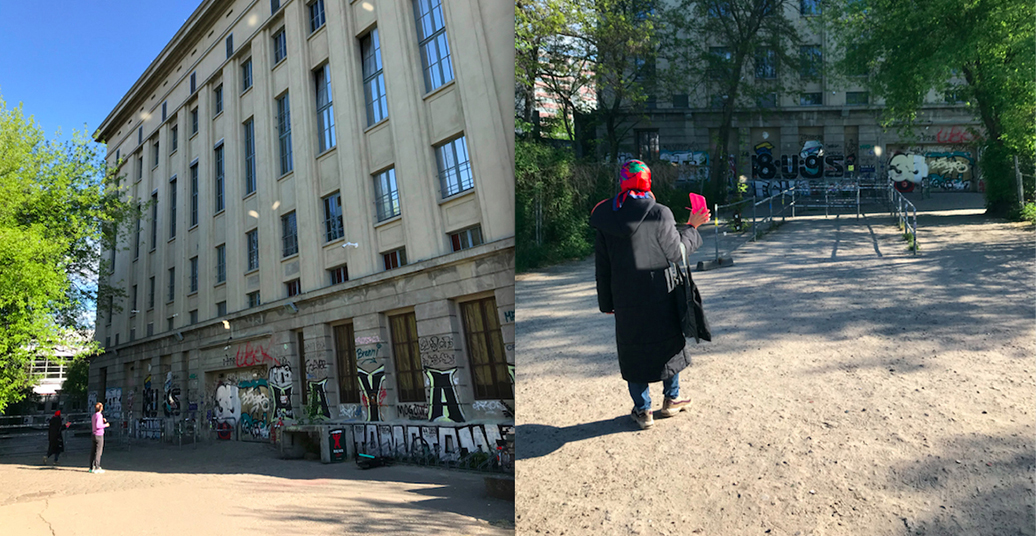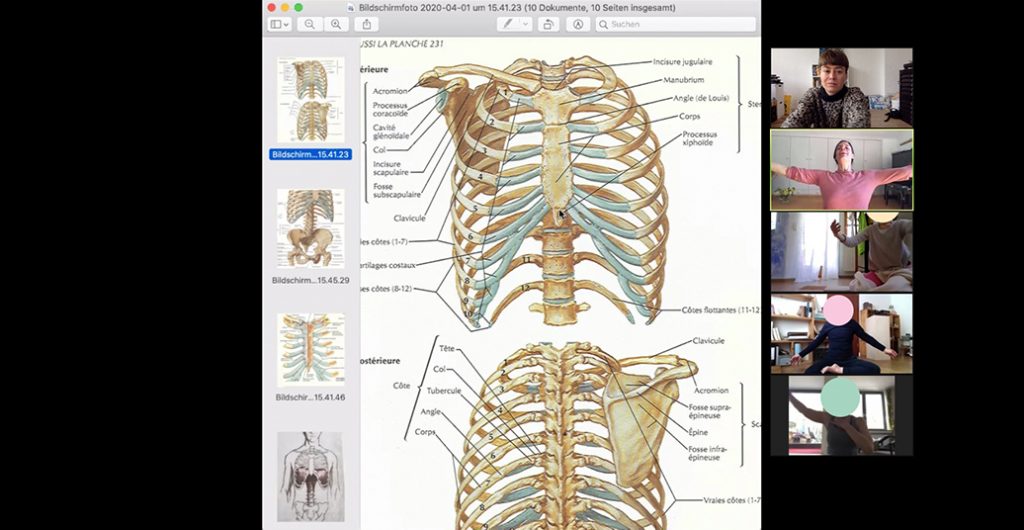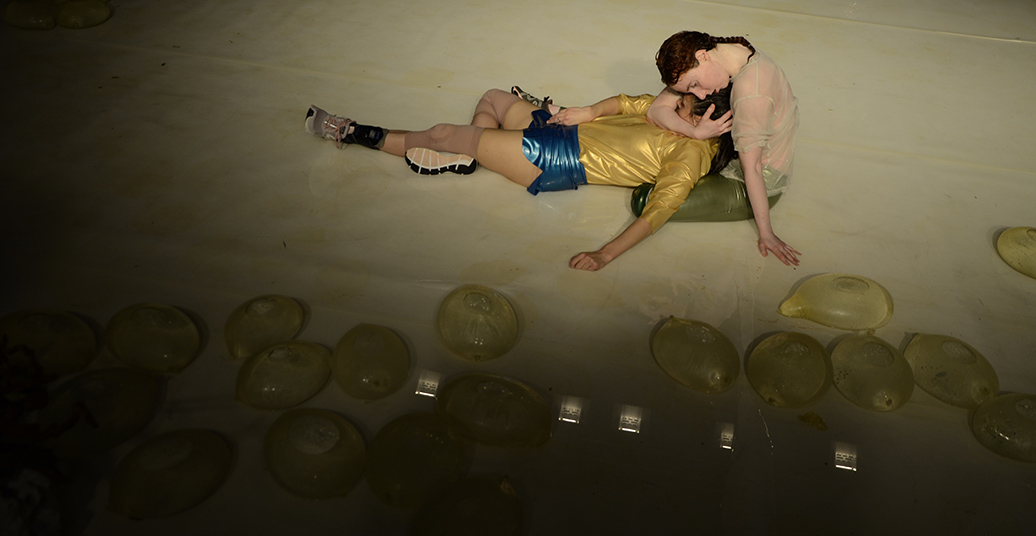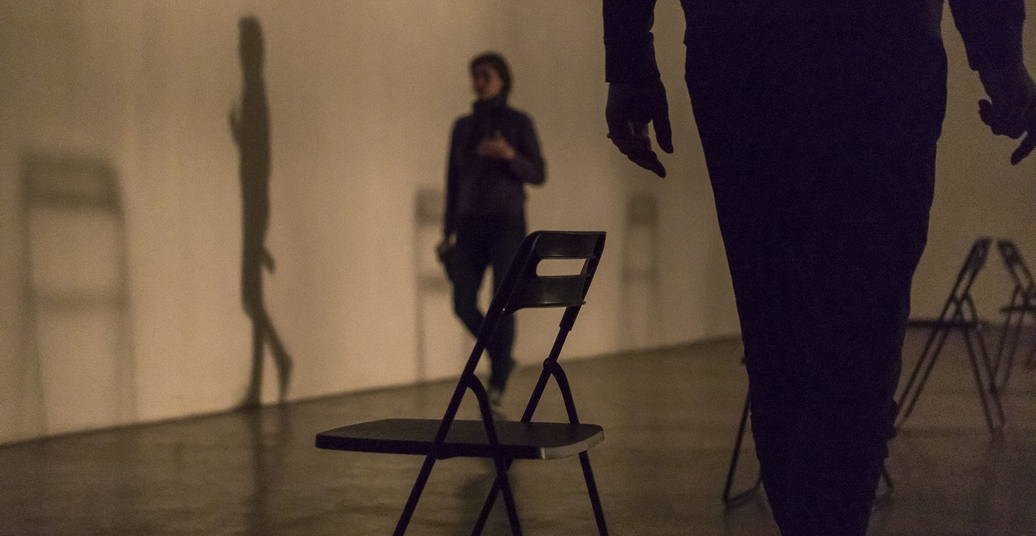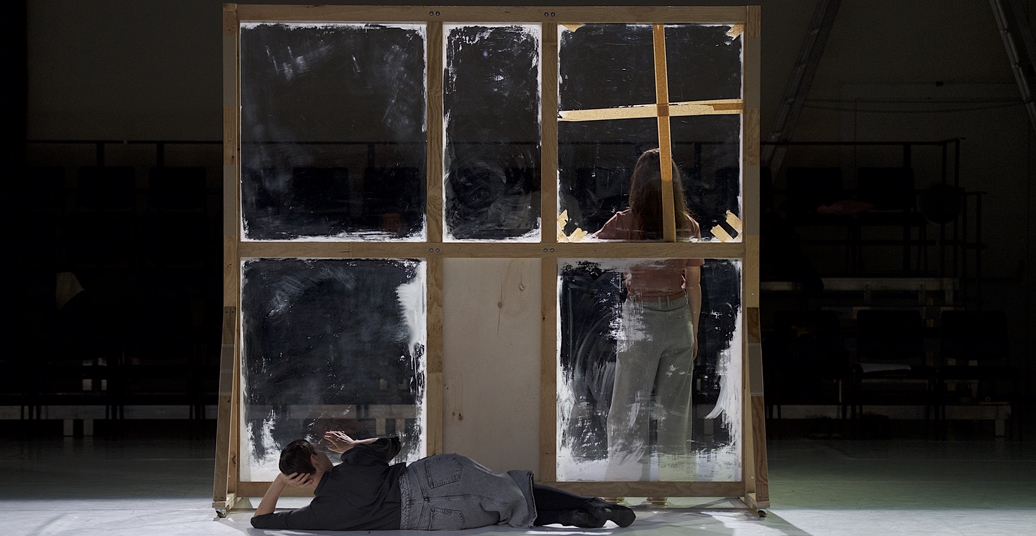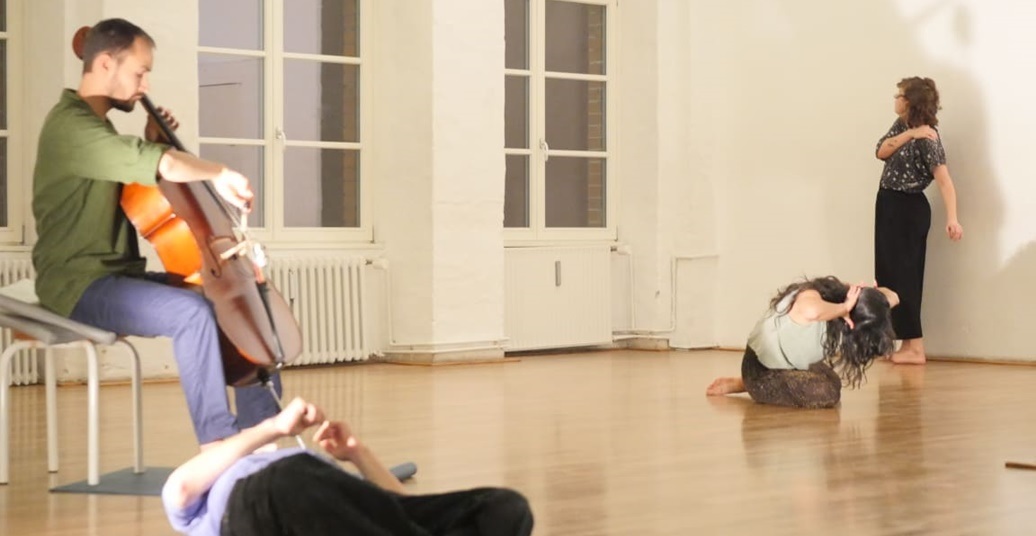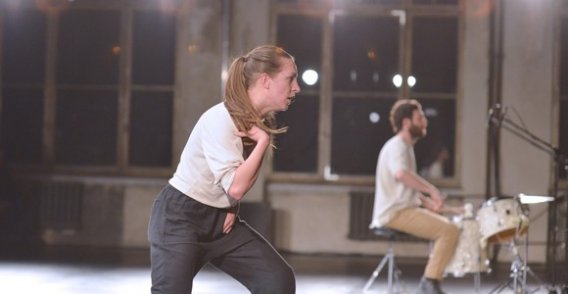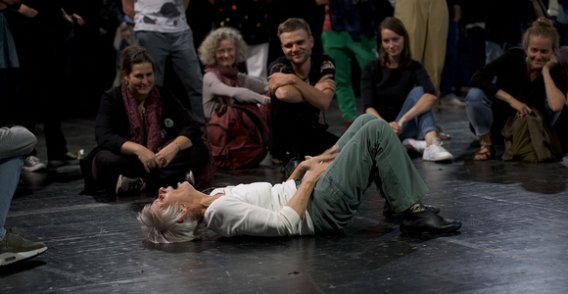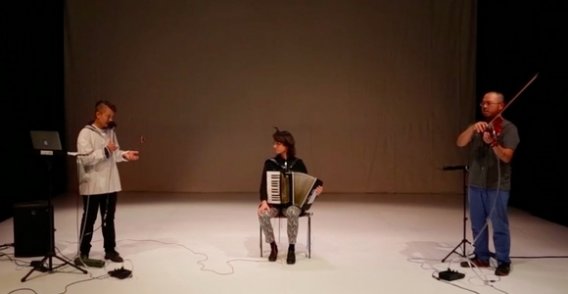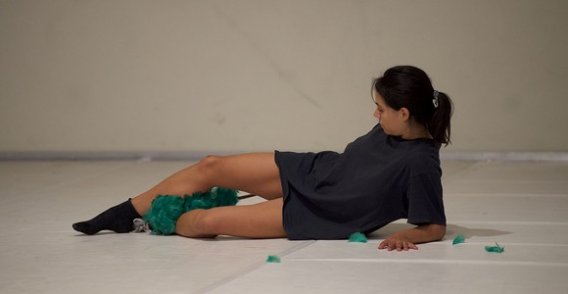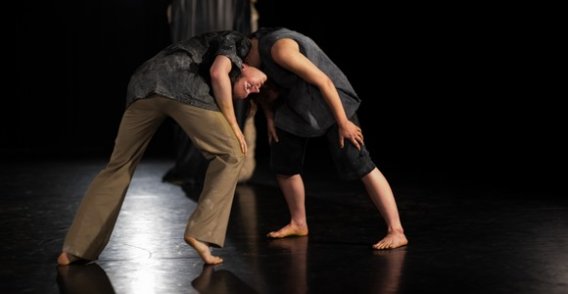For Floating Roots (9 – 12 May 2024, Tanzfabrik, revival), Inky Lee interviewed 17 1.5 and 2nd generation Asian and queer immigrants. Six of them are together on stage with two Deaf performers.
I am looking at a stage that is never still. There is a constant coming and going. Someone is always running in a circle, with thumping steps. Someone else is moving, slowly creeping, also in a circle, in the opposite direction. Or from one corner to another. Or around another person, without losing sight of them. I look left, then right, then left again. I try to grasp what is happening, what seems like soberly performed movements that appear aimless. Endless light changes immerse everything in blue, then pink, then yellow, blue, pink, yellow, etc.
The restlessness on stage washes over me like a wave. Along with a collage of accounts of migration, discrimination, loneliness and the feeling of neither belonging to the “old” nor the “new homeland”, which are the soundtrack of the piece, the performance makes me feel increasingly fatigued. And yet, this state of exhaustion probably does not even come close to how the gruelling process of years of fighting for asylum or the constant confrontation with sometimes crude and at other times subtle racist statements actually feels. I am spared all that as a white woman in Germany. Tonight, I am invited to witness the stories of those who are not able to take root anywhere and perhaps understand a bit of their rootlessness and restlessness.
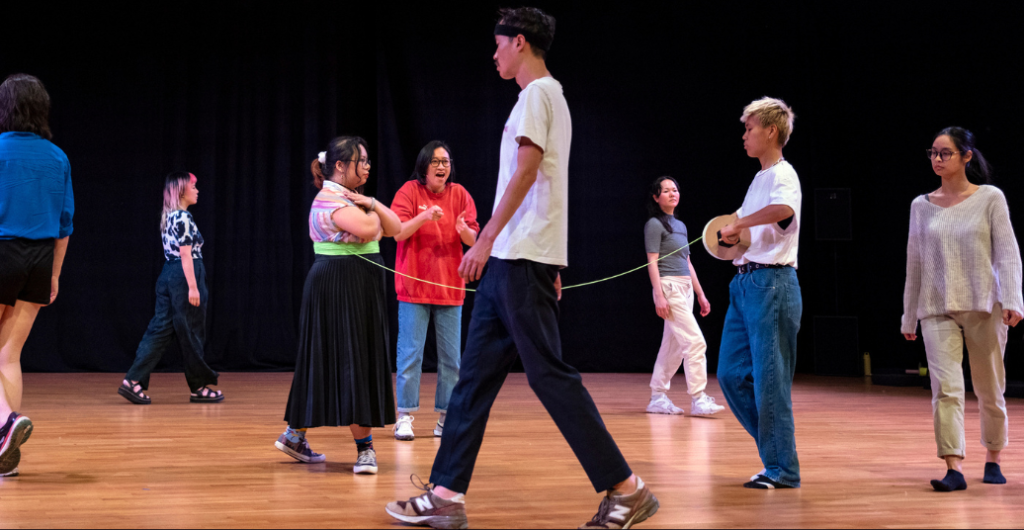
©Ceren Saner
It touches on, for example, how parents send their eight week old child to Shanghai with its grandmother so they can work in Germany. Because there is no time to take care of a child. Or a teenager who stands in front of a mirror kneading its face in the hopes of achieving a smaller nose and larger eyes. Inky Lee’s performers, who are the source of some of these stories, are on stage for the first time and only for this piece. Bound by a neon yellow rope, they move towards one another in shifting constellations. Connections are made, stretched to their limits, and cut off. Groups arise and peter out. For long stretches of the piece, I find it hard to connect what they are doing with what I am hearing. But then there are also those moments during which the precarious constellations of bodies, like a family constellation, correlate with the narratives blaring over the loudspeaker or enter into a productive, inharmonious relationship. Moments which I would have liked to see more of.
Sometimes the voices from the tape falter and burst into tears. One of the two Deaf performers, who are able to express with their faces and expressive gestures that which cannot be put into words, catches my attention. It now becomes clear to me that the archive of experiences of queer people from the Asian diaspora goes far beyond what can be shared today. To that end, Floating Roots is perhaps not a conclusion, but rather the beginning of a process.
English translation by Melissa Maldonado
Floating Roots by Inky Lee was performed at Tanzfabrik Berlin from 9 to 12 May 2024.

